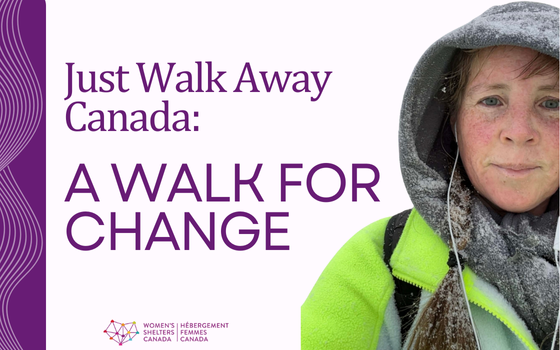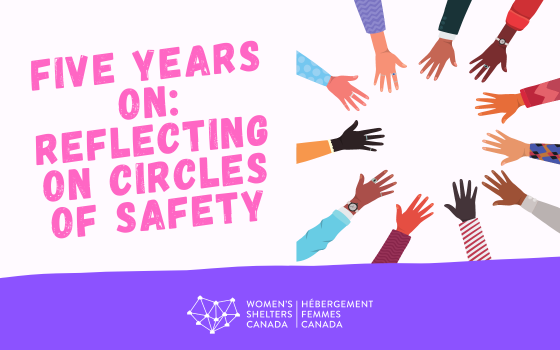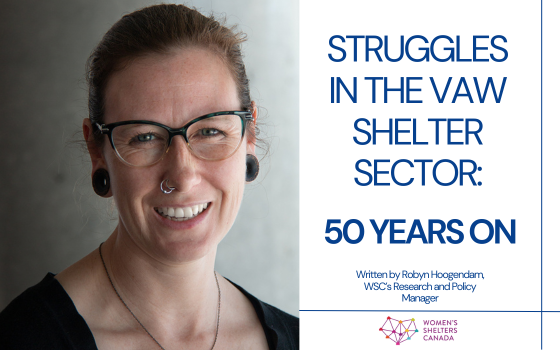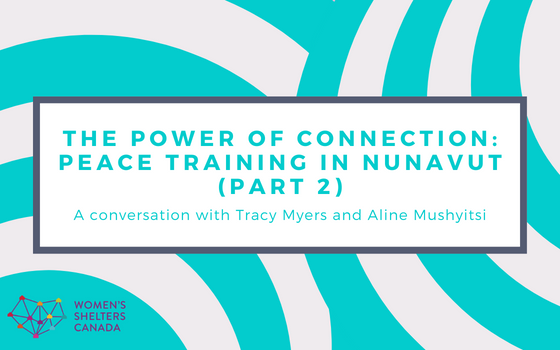 Starting a new job often comes with the all too familiar combination of excitement and nerves. On your first day, you go through your standard introductions to your coworkers and get up to speed on the work you’ll be doing. Onboarding is usually textbook, but what happens when the world is propelled into a pandemic and the textbook is thrown out the window?
Starting a new job often comes with the all too familiar combination of excitement and nerves. On your first day, you go through your standard introductions to your coworkers and get up to speed on the work you’ll be doing. Onboarding is usually textbook, but what happens when the world is propelled into a pandemic and the textbook is thrown out the window?
As if 2020 wasn’t already a chaotic year, I was also fortunate enough to start a new position at Women’s Shelters Canada as their new Communications and Development Coordinator! Excited as I was to start this new chapter in my career, I have to say starting a new job at a time like this is quite a unique experience. Of course, I was a little nervous having to get to know my team completely virtually. I am used to bonding with a new team through desk side conversations and lunches at the new restaurant in town. But we did our best with the circumstances we had with a small team meeting in the backyard of our ED’s house, six feet between us, on a warm fall day in Ottawa. On my first day, our ED also dropped off baked good to share during my first Zoom team meeting. I am thankful for a team that tried their hardest to make my onboarding as personal as possible.
2020 has been an especially difficult year to start working from home. Being forced to stay at home has blurred the lines between personal and professional as both take place in the same setting. It has brought along many issues for us all including increased mental health issues, productivity with interruptions from pets and children, and extended work hours as we take care of vulnerable family and friends. What sticks out for me, and many other people of colour, is the ongoing news reel of BIPOC (Black and Indigenous People of Colour) being assaulted, ignored by the justice system, and at its worst, murdered.
BIPOC around the world continue to receive a daily reminder that there is no escaping institutional racism, the prison industrial complex, and colonization, and that ultimately this world is not made for us to thrive in. We are all brought up knowing this discrimination to be true, but the ugly truth is usually well hidden. During the pandemic, there was no ignoring the violent murders of George Floyd and Breonna Taylor, the death of Regis Korchinski-Paquet, the treaty violations of the Mi’kmaq people, police brutality during Black and Indigenous protests, and so much more.
Canadians came to the realization that yes, things like this do happen in Canada – and they happen often. Black and Indigenous people are overrepresented in the Canadian prison system. BIPOC on average make less money and endure countless micro-aggressions that are like death by a thousand cuts. Black and Indigenous women (particularly trans women) are also disproportionally more likely to be sexually assaulted. There is much more as a community we know to be true, but with a lack of diverse research in institutions like the health sector, the extent to which people of colour are affected by racism is quantifiably unknown.
All this to say, it’s been very difficult working as a woman of colour during this time. There have been times where it has been impossible to look away from social media updates or simply concentrate on the work at hand. We’ve seen most organizations take the current climate as an opportunity to develop diversity and inclusion policies they may or may not adopt. They often give the brunt of the work to POC, who are already dealing with trauma and the countless “Are you ok?” emails from coworkers and leadership.
Joining at a time when WSC was distributing funds to women’s shelters on behalf of the Department of Women and Gender Equality (WAGE) when it’s needed more than ever is incredibly inspiring. I have gotten the opportunity to hear firsthand from shelters how much this funding has been a life saver for them and the women they serve. I am hopeful that these recent efforts will not be just a moment in history, but a continuation of the conversation for a National Action Plan on VAW.
Navigating this new work environment has been difficult, but with a team so dedicated to supporting women’s shelters and ending VAW, it makes it easier to find the drive to keep going. I look forward to bringing to light the injustices against survivors of VAW and continuing to be an advocate for POC in this space.





Leave A Comment
You must be logged in to post a comment.